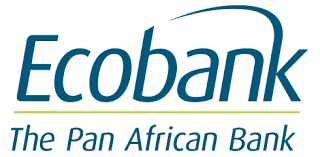Business
Honeywell Awarded N72.2bn Damages Against Ecobank

Honeywell Flour Mills Plc has won N72.2 billion in damages against Ecobank Nigeria.
A Federal High Court (FHC), Lagos, presided over by Justice Mohammed Liman, entered the ruling on Tuesday.
The judgment came as part of efforts to resolve a longstanding legal tussle between the flour millers and the lender.
Both parties have been embroiled in protracted legal battles founded on several allegations and counterclaims.
The protracted legal battle kicked off in November 2015 when Ecobank obtained ex-parte order from the FHC to freeze Honeywell Flour Mills’ assets, including all its bank accounts.
The company claimed that the order almost crippled their businesses, as they were financially incapacitated from fulfilling their obligations to stakeholders.
They were unable to pay suppliers, process Letters of Credit, and collect payment from distributors, thus endangering the livelihood of over 2,000 employees and causing significant reputational and operational damage.
After weeks of struggling to run a business without access to their bank accounts, Honeywell Flour Mills applied for discharge of the orders, with the court varying the asset freezing ex-parte orders and allowing the company limited access to its accounts.
In March 2016, a Court of Appeal (CA) overruled the ex-parte order to restore Honeywell Flour Mills’ right to operate its accounts without any restrictions, stating that Ecobank’s application to freeze the assets should not have been allowed to stand.
Consequently, in an appeal against the judgment, Ecobank asked the Supreme Court (SC) to overturn the Court of Appeal’s (CA) ruling.
However, the SC upheld the appellate court’s decision that an ex-parte injunction was not permitted to be filed in a winding-up petition.
Following the SC’s upholding of the CA’s judgment, Honeywell Flour Mills demanded that Ecobank fulfill its undertaking to compensate the company for the loss suffered due to the ex-parte order, which has turned baseless.
The company sought damages in excess of N72bn against Ecobank.
In his arguments, Honeywell Flour Mills’ lead counsel, Bode Olanipekun, argued that the SC determined that the ex parte orders obtained by the bank against the plaintiff were improper, and once a court makes a finding is made that an application is improper then that application is frivolous.
On his part, Ecobank’s legal counsel, Kunle Ogunba, argued that in its undertaking, it gave a condition that “if HFMP suffers any damage, it should send a notification to the registrar of the court, who will then inform the bank”.
The bank is insisting that the above condition was not carried out, which meant that HFMP would not entitled to damages.
The FHC, however, having carefully the evidence adduced before it and listening to the deliberations, reached a decision in favour of Honeywell Flour Mills.
Consequently, the court granted the four reliefs sought by the flour miller, which amounted to N72.2bn.
Business
Savannah Energy Provides Unaudited FY 2024 Trading Updates

Savannah Energy has shared a trading update on its Nigerian operations and other markets in Africa, including up-to-date cash collections in its Nigerian business.
According to the update, made available on Thursday in Lagos, its gross production in Nigeria averaged 23.1 Kboepd for FY 2024, broadly in line with the prior year’s 23.6 Kboepd, of which 88% was gas (FY 2023: 91%).
On the update, CEO of Savannah Energy, Andrew Knott, said, “I am pleased to provide a FY trading update which demonstrates the continued progress we have made in 2024, a year which saw the highest level of cash collections ever recorded by our Nigerian business. 2025 is expected to be an exciting year for our Company: we have a large planned operational programme in Nigeria which is anticipated to enhance both our oil and gas production levels and capacity; we intend to progress our R3 East oil development project in Niger; we continue to pursue key acquisitions in the upstream oil and gas space; and we continue to seek to build our power business.
“Fundamentally, Savannah remains unequivocally an “AND” company, seeking to deliver strong performance both for the short AND long term across multiple fronts, and pursuing growth opportunities in both the hydrocarbon AND power sectors.”
The update It also shows that it generated a Total Income of US$393.6 million in 2024, compared to FY 2023’s US$289.8 million. This consists of Total Revenues of US$258.7 million and Other operating income of US$134.9 million.
The report also shows that Savannah’s FY 2024 Total Revenues were ahead of the previously issued financial guidance of greater than US$245 million, while FY 2024 financial guidance is reiterated for Operating expenses plus administrative expenses at ‘up to US$75 million’. The company expects its FY 2024 capital expenditure to come in lower than planned (previously guided at ‘up to US$50 million’) due to the phasing of spend.
ALSO READ: CSR: Dangote Awards Scholarships To 473 Students
According to the update, Savannah’s cash collections in 2024 amounted to US$248.5 million, a slight increase from the US$206 million it received in 2023. The report further shows that its cash balances as at 31 December 2024 stood at US$32.6 million, compared to the 31 December 2023 figure of US$107.0 million.
The report shows that the company’s midstream subsidiary, Accugas Limited, had as at 31 December 2024 drawn down on its NGN332 billion of the NGN Transitional Facility, with the resulting funds being converted to US$, which, along with cash held, was used to partially prepay the existing Accugas US$ Facility, leaving a balance as at 31 December 2024 of approximately US$212.3 million.
The report also provided new updates on Accugas’ US$45 million Uquo Central Processing Facility (“Uquo CPF”) compression project in Nigeria, noting that its commissioning which will enable the expansion of gas production in the medium term is well underway.
The report highlighted the progress being made in the procurement process of long lead equipment in Nigeria for a potential two-well drilling campaign on the Uquo Field in H2 2025, with an additional gas development well expected to add up to 80 MMscfpd of supplemental production capacity and a potential exploration well targeting an Unrisked Gross gas initially in place (“GIIP”) of 154 Bscf (25.7 MMboe) of incremental gas resources.
The update shows that progress is also being made in the planned Savannah acquisition of Sinopec International Petroleum Exploration and Production Company Nigeria Limited, whose principal asset is a 49% non-operated interest in the Stubb Creek oil and gas field (“Stubb Creek”), with regulatory approval and completion being targeted in Q1 2025. Following the completion of the acquisition, Savannah intends to commence an expansion programme which is anticipated to increase Stubb Creek gross production from an average of 2.7 Kbopd in 2024 to approximately 4.7 Kbopd.
In Niger, Savannah continues to seek to progress its 35 MMstb (Gross 2C Resources) R3 East oil development in South-East Niger, while it continues to push for a potential alternative transaction structure to acquire a material stake in producing oil and gas assets in South Sudan as previously announced on 20 December 2024.
On the renewable energy front, the update shows that Savannah has up to 696 MW of renewable energy projects currently in motion, including the up to 250 MW Parc Eolien de la Tarka wind farm project in Niger and the up to 95 MW Bini a Warak hybrid hydroelectric and solar project in Cameroon. A firm believer in Africa’s transition to renewable energy, Savannah continues to target a portfolio of up to 2 GW+ of power projects in motion by the end of 2026.
Business
Nigeria Can Achieve 5.5% GDP Growth – NESG
The Nigerian Economic Summit Group (NESG) has projected that the country has the potential to achieve a 5.5% growth in Gross Domestic Product (GDP) if critical policy reforms are sustained.
This was disclosed on Thursday during the launch of the NESG’s 2025 Macroeconomic Outlook report.
Speaking at the event, the Chief Economist and Director of Research & Development at NESG, Dr. Olusegun Omisakin, highlighted the need for more efficient policy implementation to unlock Nigeria’s economic potential.
READ MORE: Davido Is Richer Than His Billionaire Father – Ibrahim Chatta Claims
“We believe at the optimal level, if we embark on more efficient policy reforms, the Nigerian economy has the potential, the GDP to end up at 5.5 per cent, and we believe that this is achievable,” Omisakin stated.
More to follow……….
Business
CBN Approves Release Of Nigerian FX Code
The Central Bank of Nigeria (CBN) has announced the release of the Nigerian Foreign Exchange (FX) Code, a set of guidelines designed to promote ethical conduct among authorized dealers in the country’s FX market.
In a statement, the apex bank disclosed that the official launch of the Code would take place on Tuesday, January 28, 2025, at the CBN Head Office Auditorium in Abuja.
READ MORE: Dangote Denies Culpability In Pumping Up Petrol Price
“The Central Bank of Nigeria has approved the release of the Nigerian Foreign Exchange (FX) Code as a guideline to the banking industry to promote the ethical conduct of authorised dealers in the Nigerian Foreign Exchange Market,” the statement read.
The introduction of the FX Code is expected to enhance transparency, accountability, and professionalism within Nigeria’s foreign exchange ecosystem, aligning it with global best practices.
The event is anticipated to attract key stakeholders in the financial and banking sectors, as well as representatives from authorized FX-dealing institutions across the country.


















